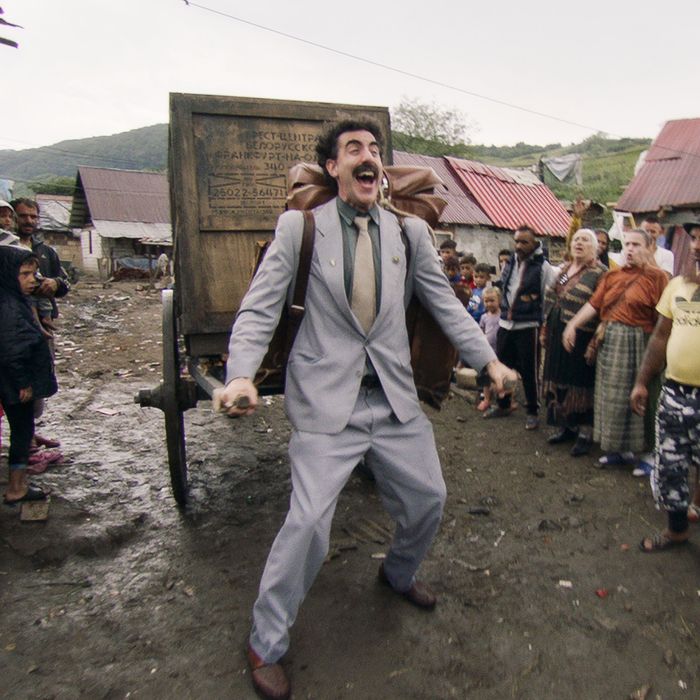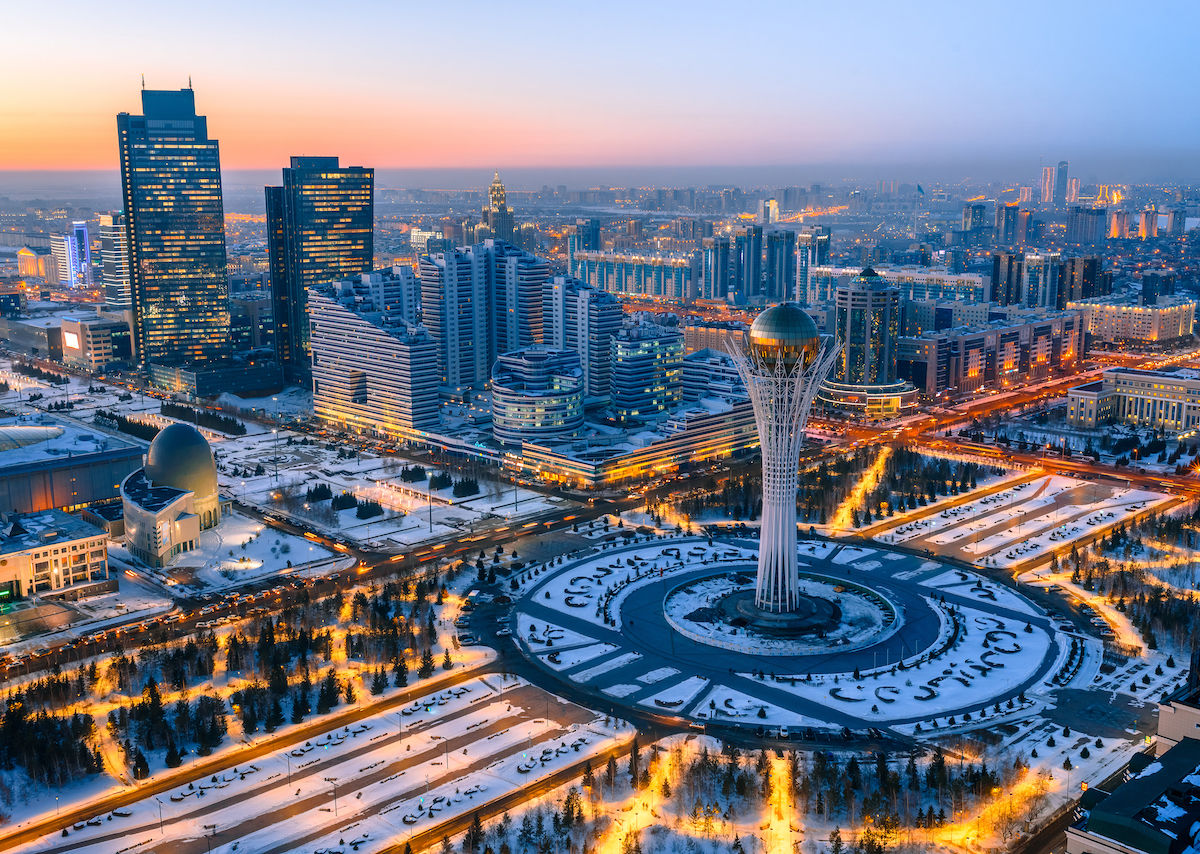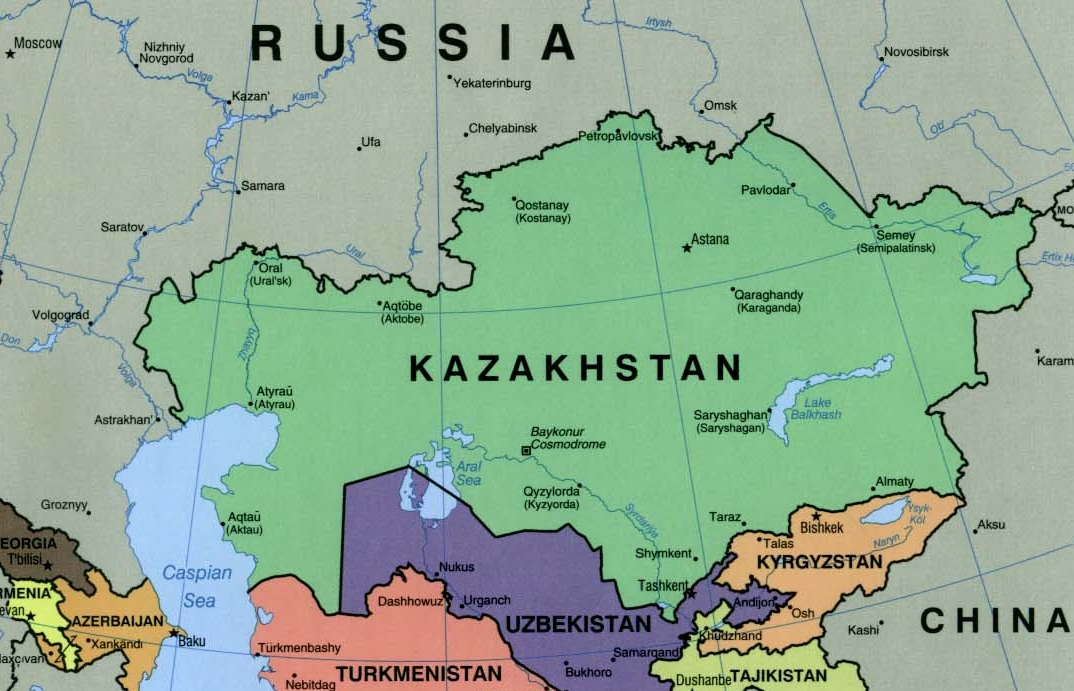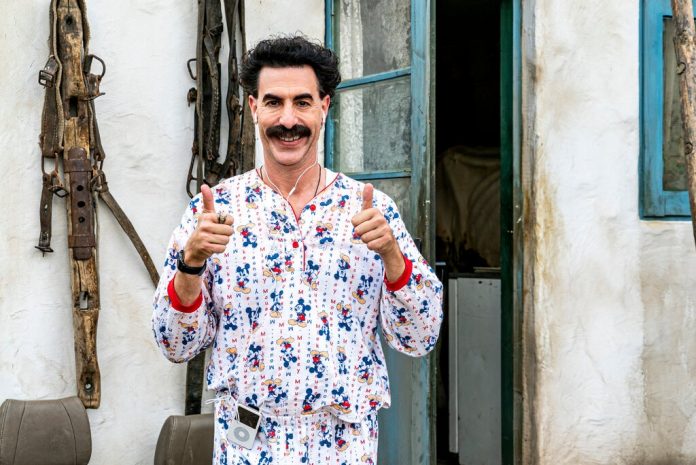by: Manashe Khaimov
Contributed by: Rozeeta Mavashev
“In my country there is a problem, and the problem is… Borat” Borat, played by Sacha Baron Cohen, is a movie that portrays Kazakhstan as a primitive, racist, and anti-semetic country. As a proud Bukharian Jew, whose ancestors lived in a city along the Silk Road for 2500 years, I would like to shed some light on this amazing country called Kazakhstan.
 Kazakhstan is one of the five “stans” where Bukharian Jews come from. It is the 9th largest country in the world, right after Argentina. It borders five countries – Russia, China, Kyrgyzstan, Uzbekistan and Turkmenistan. The name “Kazakh” comes from the ancient Turkic word kaz which means “to wander”, reflecting the Kazakhs’ nomadic culture. The Persian suffix -stan means “land” or “place of”, so Kazakhstan literally means “land of the wanderers”. According to Britannica, “Kazakhstan possesses abundant natural resources. Its major exports include agricultural products, raw materials, chemical products, and manufactured goods.”
Kazakhstan is one of the five “stans” where Bukharian Jews come from. It is the 9th largest country in the world, right after Argentina. It borders five countries – Russia, China, Kyrgyzstan, Uzbekistan and Turkmenistan. The name “Kazakh” comes from the ancient Turkic word kaz which means “to wander”, reflecting the Kazakhs’ nomadic culture. The Persian suffix -stan means “land” or “place of”, so Kazakhstan literally means “land of the wanderers”. According to Britannica, “Kazakhstan possesses abundant natural resources. Its major exports include agricultural products, raw materials, chemical products, and manufactured goods.”
 Kazakhstan’s national drink is “Kumis,” fermented horse milk, and not urine as per Borat. Kazakhstan has over 150 nationalities and languages spoken. Kazakhstan people are very friendly, open-minded and geographically well-connected because they live in the middle of what was the Silk Road which has exposed them to so many cultures, customs, and religions. During Soviet Union times Kazakhstan was a testing ground, where soviets completed most of their nuclear tests, and Kazakhstan people were treated as second class citizens in their own homeland.
Kazakhstan’s national drink is “Kumis,” fermented horse milk, and not urine as per Borat. Kazakhstan has over 150 nationalities and languages spoken. Kazakhstan people are very friendly, open-minded and geographically well-connected because they live in the middle of what was the Silk Road which has exposed them to so many cultures, customs, and religions. During Soviet Union times Kazakhstan was a testing ground, where soviets completed most of their nuclear tests, and Kazakhstan people were treated as second class citizens in their own homeland.
Many Kazakhstanians are not happy with Borat, especially when Borat’s joking version of the national anthem was accidentally played (instead of the real one) after the Kazakhstan national shooting team won the gold medal in Kuwait in 2012. I am sure they are not any happier now with the Borat Subsequent MovieFilm 2020.
For Americans who would love to visit Kazakhstan, you may do so without buying a visa since 2017. Unless, as a result of Borat Subsequent Moviefilm, you would have to buy one since they might put restrictions on the USA. If I were you I would put Kazakhstan on my bucket list, as the number one destination post COVID 19.

What is so Jewish about Kazakhstan?
Firstly, it was home to many Bukharian Jews (Jews of Central Asia). Secondly, it was a shelter for Ashkanazim who were evacuated and or fled there during WWII and were greeted by Bukharian Jews as well as Kazakhstan citizens who provided food, shelter, and Jewish continuity. Finally, this is the place where Rabbi Levi Yitzchak Schneerson; the father of Rabbi Menachem Mendel Schneerson the late Lubavitcher Rebbe, was exiled to Kazakhstan and was warmly received by the Bukharian Jewish community where he continued to transform Jewish lives. Rabbi Levi Yitzchak is buried at a cemetery in Almata, Kazakhstan and his burial space is declared a Kazakh National Heritage site. Kazakhstan has a small flourishing Jewish life and they are very tolerant to the Jewish minorities.
The Bukharian Jewish community have lived along the Silk Road in Central Asia (Uzbekistan, Kazakhstan, Kyrgyzstan, Tajikistan and Turkmenistan) for more than 2,500 years — since the destruction of the First Temple in Jerusalem in 586 BCE. Following the collapse of the Soviet Union in 1991 a large number of Bukharian Jews emigrated to Israel, and settled in Queens, New York — in fact, it is home to the second largest Bukharian Community in the world. There are an estimated 250,000 Bukharian Jews around the world today with a rich Jewish history that proves Borat’s portrayal of Kazakhstan is missing Jewish truth.
The first Bukharian Jewish settlement in Kazakhstan is dated to the second half of the eighteenth century, during the reign of Khan Ablay, the last Khan of all Kazakhstan. Several Bukharian Jewish families living in the Bukhara Emirate and Kokand khanate, managed to escape to the endless lands of Kazakhstan, due to the historical times when Bukharian Jews living in those areas have been oppressed and constantly humiliated with institutional “Djimmi” laws. Initially, Bukharian Jews settled in Khazret-Sultan (Turkestan), then in Ak-Mechet (Kyzyl-Orda), Kazalinsk (Kazaly), and by the mid-nineteenth century, Kazakhstan became part of the Russian Empire. This is when Bukharian Jews moved to Chimkent, Aulie-Ata (Dzhambul), and Verniy (AlmaAta).
Bukharian Jews flourished in Kazakhstan. By 1926 Kyzyl-Orda (a city in Kazakhstan) had 30 Bukharian Jews families, a Jewish Elementary school, middle school, and high school that were forced to adapt a Soviet curriculum but were taught in the Bukharian Jewish language. The community had a synagogue, that lasted until 1999, and land to build a cemetery (that was actually granted to the Bukharian Jewish community by Lenin himself). According to Dr. Robert Pinkhasov ( a Bukharian historian), by 1940 there were 250 Bukharian Jewish families living in Kyzyl-Orda.
Around the same time, in 1947, Chimken (another city in Kazakhstan) had 100 Bukharian Jewish families and a synagogue that also had a separate prayer room for Ashkanazi Jews. In 1970 in Chimket the Bukharian Jewish community was able to purchase property on Sverdlov Street that was and still stands as an active synogogue today. In NYC in 2008, the “Chimkent Fund” was established to begin restoration on two Jewish cemeteries in the Chimkent region.
Almata was one of the last places where Bukharian Jews settled and were scattered around the city. By 1971 there were approximately 30 Bukharian Jewish families living there. Today there are an estimated 30,000 Jews in Kazakhstan according to Emet VeEmuna, a Bukharian Jewish organization that supports the elderly and veterans; majority of whom are Ashkanazi Jews. Almata, has the country’s largest Jewish community, and smaller communities are found in Nur-Sultan (Astana), Semiplatinsk, Dzhambul, Uralsk, and Karaganda. They have a Joint Distribution Committee (JDC) and a Chabad Rabbi, R’ Yeshaya E. Cohen, who assures us that, “Kazakhstan’s Jews are free to show their Jewishness. A new generation is growing up with synagogues, Jewish schools, and Jewish classes open for the first time in the country in years.” There is rich Jewish history that has taken place in Kazakhstan, a country that has opened its doors to Bukharian and Ashkanazi Jews for generations. There’s an untapped history of Kazakhstan that consists of a Jewish narrative that begs for attention and not the kind that Borat has humiliatingly displayed.
To learn more about Mizrahi Jewish history here are a few simple and accessible ways: The Jewish Silk Road Walking tours in Queens, visit Bukharian Jewish Heritage Museum, attend virtual classes, or invite Mizrahi representatives to speak in your community. Check out the link for more options: Bukharian History Classes online https://tinyurl.com/BoboAcademy other resources https://linktr.ee/MizrahiAcademy










